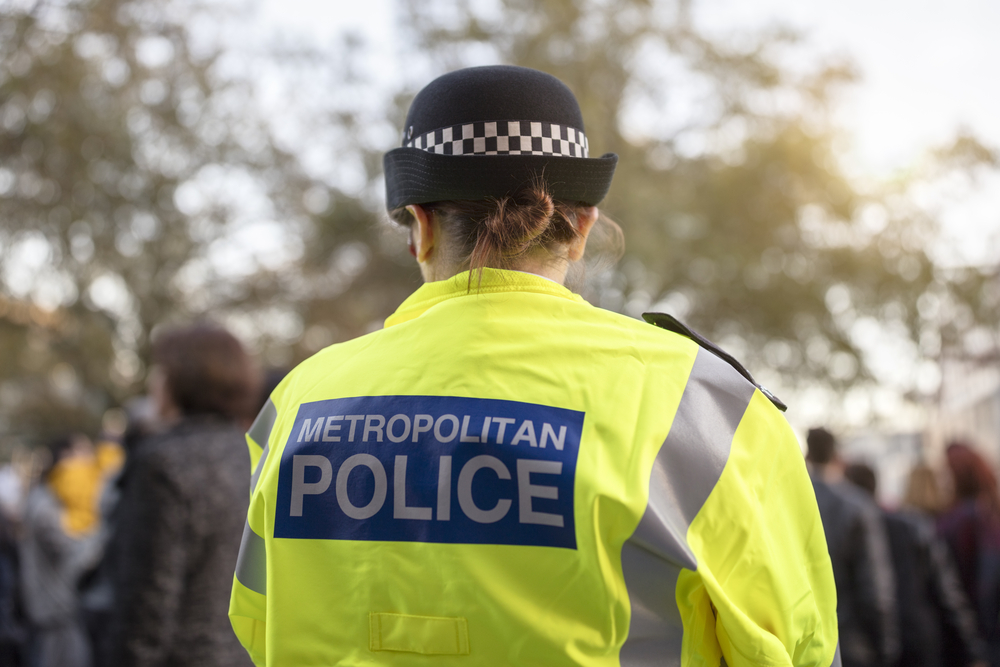IOPC: What does it do and what powers does it have over the police?

The Independent Office for Police Conduct is currently investigating South Wales Police and the Met over separate incidents
A fatal car crash that sparked riots in Cardiff and an elderly woman being hit by a royal police escort in London have both resulted in referrals to the Independent Office for Police Conduct (IOPC).
South Wales Police referred itself to the watchdog after CCTV footage emerged showing one of its vans following two teenage boys on an electric bike just before they crashed and died. The force say it was not on the road at the time.
The deaths of Kyrees Sullivan, 16, and Harvey Evans, 15, led to riots in the Ely area of the Welsh capital on Monday night.
The IOPC is also investigating the Metropolitan Police actions after a motorbike escorting the Duchess of Edinburgh hit 81-year-old Helen Holland as she crossed the road in Earl’s Court on 10 May. The great-grandmother has since died.
What does the IOPC do?
The IOPC presides over the police complaints system in England and Wales. It is independent from the police and the government.
It only investigates the most serious police complaints, where a person has died or been seriously injured, or a member of staff is accused of corruption or a criminal offence.
Relevant incidents include fatal crashes, shootings, deaths or suicides in police custody, or after, and those involving tasers.
During the year 2021/22 the IOPC looked into 217 deaths following police contact.
Most complaints about the police are less serious and dealt with by the force itself, which will have a dedicated ‘professional standards department’.
The watchdog’s remit has expanded considerably in recent years and now also includes police and crime commissioners, the London Mayor’s Office, Her Majesty’s Revenue and Customs (HMRC), Border Force, the Home Office and the National Crime Agency.
When does the IOPC get involved?
Police forces or other bodies can refer themselves to the IOPC voluntarily if a complaint has been made or they think one is likely.
They have to do so by law if:
There has been an allegation of serious corruption or assault
There is a suggestion of staff misconduct or a criminal offence
Someone has died or been seriously injured after having direct or indirect contact with police and that may have been the cause
Someone appears to have taken their own life following police custody
What powers do they have – and what are the outcomes?
If the IOPC does launch an investigation, its officers will take witness statements, interview the staff involved, analyse CCTV and body-worn video footage, and documents or communication records.
Although the force can make representations, the watchdog has the ultimate say in the outcome.
If they order the force to launch disciplinary proceedings, those involved could get a written warning, be put on reduced duties, or be sacked.
The watchdog may feel there is evidence that merits a criminal investigation. If this happens they will pass it to the Crown Prosecution Service (CPS), which could decide to arrest and charge them.
In 2021 former West Mercia Police officer PC Benjamin Monk was sentenced to eight years in prison for the manslaughter of ex-footballer Dalian Atkinson in 2016.
After the case was referred by the IOPC, a jury found he tasered him for six times longer than the normal cycle and kicked him twice.
The IOPC’s predecessor, the Independent Police Complaints Commission, investigated the death of Mark Duggan in Tottenham which sparked the 2011 London Riots.
It concluded there was no criminal offences committed by police and backed up by an inquest that found he was lawfully killed.
Source: (Sky News)

